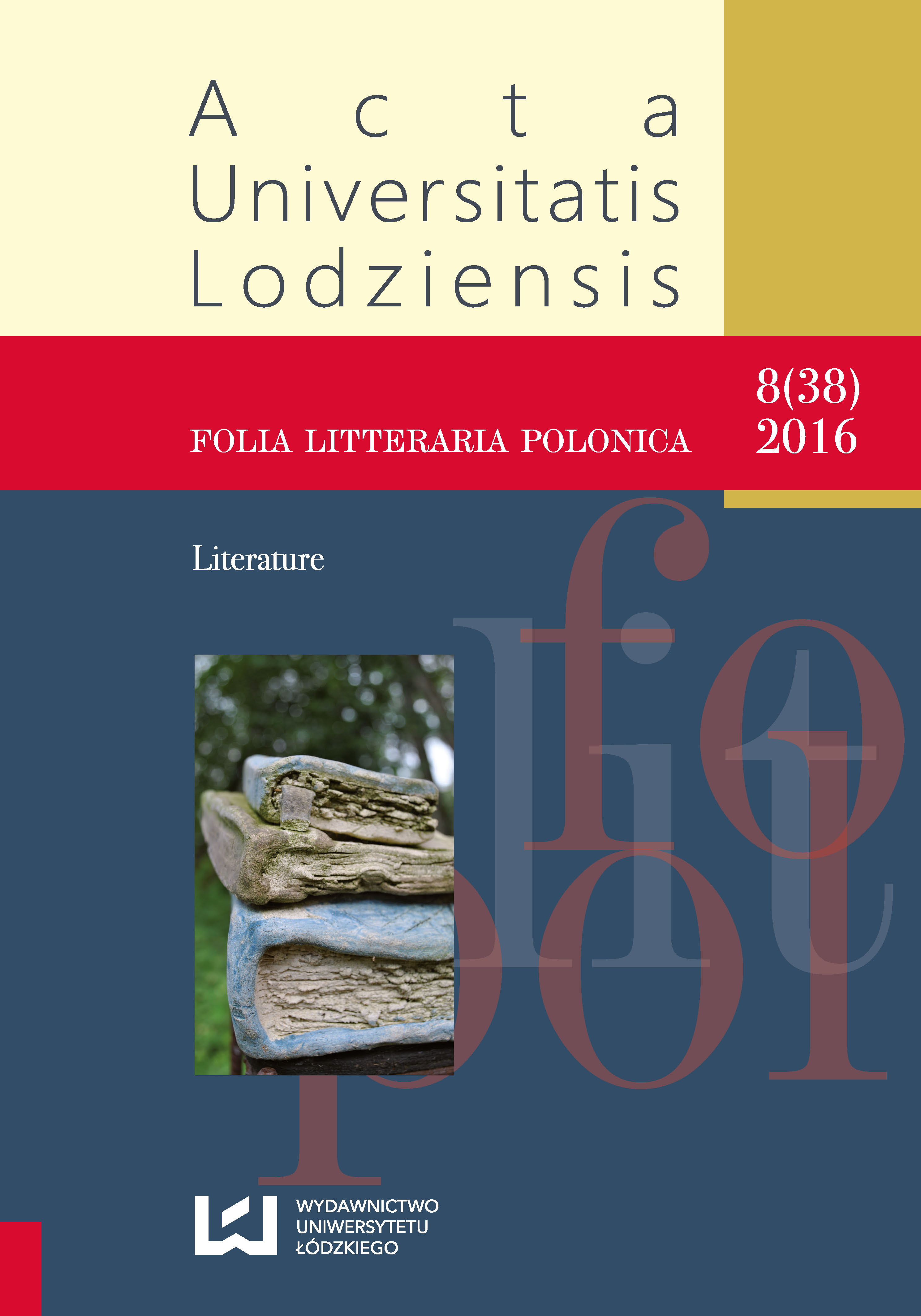Czesław Miłosz’ American Experience in Światło dzienne (Daylight)
DOI:
https://doi.org/10.18778/1505-9057.38.07Słowa kluczowe:
Czesław Miłosz, DaylightAbstrakt
Miłosz’s volume Światło dzienne (Daylight, 1953) is conventionally read by critics as the political poetry deeply engaged with history. The article offers a corrective to this traditional reading by interpreting the volume as an interplay of European and American influences. As a European poet, Miłosz had experienced the violent demise of ideals that were the foundation of the Old World. Światło dzienne (Daylight) is, therefore, at one level, an elegiac volume, in which both persons and ideas are mourned. On the other hand, to the extent that for Miłosz America continues the noble ideas abandoned in Europe, he cannot accept what he regards as their misguided or perverse incarnations. This explains the emotional climate of the whole volume, with its dominant mood of disappointment, anger and a refusal of reconciliation. Światło dzienne (Daylight) is American in its outlook on taking seriously America’s status as a superpower and its influence on the future direction of the global history. It is anti-American, however, in identifying America’s perceived failures to live up to the post-war challenge for the human civilization in general, and the consequent dangers. The article intends to assess Miłosz’s debt to English-language poetry in this volume in light of his personal notes from his reading and translation work at the time.
Pobrania
Bibliografia
Balbus Stanisław, Między stylami, 2nd ed., Universitas, Cracow 1996.
Google Scholar
Błoński Jan, Miłosz jak świat, Znak, Cracow 1998.
Google Scholar
Gorczyńska Renata (Czarnecka Ewa), Podróżny świata. Rozmowy z Czesławem Miłoszem. Komentarze, Wydawnictwo Literackie, Cracow 1992.
Google Scholar
Fiut Aleksander, Moment wieczny. O poezji Czesława Miłosza, Wydawnictwo Literackie, Warsaw 1993.
Google Scholar
Łapiński Zdzisław, Między polityką a metafizyką. O poezji Czesława Miłosza, in: Poznawanie Miłosza 2. Część pierwsza 1980–1998, A. Fiut (ed.), Wydawnictwo Literackie, Cracow 2000, pp. 7–32.
Google Scholar
Matuszewski Ryszard, Dążenie do formy pojemnej, in: idem, Moje spotkania z Czesławem Miłoszem, Wydawnictwo Literackie, Cracow 2004, pp. 111–159.
Google Scholar
Miłosz Czesław, Kontynenty, Znak, Cracow 2001.
Google Scholar
Miłosz Czesław, List pół-prywatny o poezji, w: idem, Kontynenty, Wydawnictwo Znak, Kraków 1999, s. 70–90.
Google Scholar
Miłosz Czesław, Notatnik, “Nowiny Literackie” 1948, No. 15, pp. 1–2.
Google Scholar
Miłosz Czesław, Rodzinna Europa, Wydawnictwo Literackie, Cracow 2001.
Google Scholar
Miłosz Czesław, Wiersze, vol. 1, Znak, Cracow 2001.
Google Scholar
Miłosz Czesław, Wiersze, vol. 2, Znak, Cracow 2002.
Google Scholar
Miłosz Czesław, Wiersze i ćwiczenia, ed. M. Skwarnicki, Świat Książki, Warsaw 2008.
Google Scholar
Miłosz Czesław, Zaczynając od moich ulic, Instytut Literacki, Wroclaw 1990.
Google Scholar
Miłosz Czesław, Zaraz po wojnie. Korespondencja z pisarzami 1945–1950, Znak, Cracow 2007.
Google Scholar
Miłosz Czesław, Życie na wyspach, Znak, Cracow 1998.
Google Scholar
van Nieukerken Arent, O “niewczesności” Norwida, dwóch modernizmach i Miłoszu, in: Poznawanie Miłosza 2. Część pierwsza 1980–1998, A. Fiut (ed.), Wydawnictwo Literackie, Cracow 2000, p. 384–398.
Google Scholar
Nycz Ryszard, Miłosz: biografia idei, in: idem, Sylwy współczesne, 2nd ed., Universitas, Cracow 1996, pp. 58–84.
Google Scholar
Zaleski Marek, Zamiast. O twórczości Czesława Miłosza, Wydawnictwo Literackie, Cracow 2005.
Google Scholar











